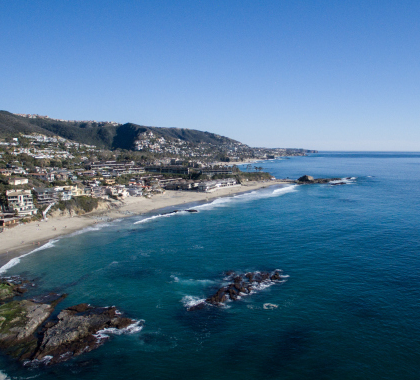The Pacific Research Institute (PRI) is a nonprofit organization based in San Francisco, California with a mission of championing freedom, opportunity, and personal responsibility for all individuals by advancing free-market policy solutions that promote a free economy, limited government, and private initiative. PRI was founded in 1979 by Sir Antony Fisher and San Francisco businessman James North to promote the vision of a free and civil society where individuals can achieve their full potential.
PRI pursues this vision through community outreach, debates, events, independent research, invited legislative testimony, legal briefs, media commentaries, publications, speeches, and videos, and by working with recognized policy experts throughout its program areas, including its Center for the Environment.
Markets Promote the Environment
PRI’s Center for the Environment researches the dramatic long-term trend toward a cleaner, healthier environment and promotes the catalysts for abundant resources and environmental quality: property rights, local action, markets, and private initiative.
The center highlights the true costs of anti-growth energy policies, especially on consumers. PRI has shown policies such as cap-and-trade regulations, efficiency standards, electric vehicle subsidies, motor vehicle and renewable fuel standards, renewable portfolio mandates, and restrictions on fossil fuel production impose large economic costs. Higher electricity and fuel costs increase the cost of living for families and households. Such costs are particularly burdensome on lower-income families, who can least afford these additional expenses.
Environment, Wealth, and Poverty
PRI’s Center for the Environment published two major studies in 2018, each of which drew statewide and national media attention.
In Costly Subsidies for the Rich, PRI Senior Fellow Wayne Winegarden analyzed the impact of taxpayer-funded electric car subsidies. His research found 79 percent of the subsidies were claimed by those making more than $100,000 per year. Citing Winegarden’s research, there is a renewed effort in Congress to eliminate these giveaways to the wealthy.
In December 2018, PRI released Legislating Energy Poverty, a case study showing how the big-government approach to fighting climate change taken by California and New York hits working-class and minority communities the hardest.
According to a 2011 survey, 52 percent of respondents said their energy bills were harder to afford than in the previous year, and the number of households receiving energy assistance from the federal government remained 40 percent higher in 2014 than it was before the recession of 2007-2008.
The study made it clear middle-income and low-income households can ill afford the costs California-style energy policies inflict on the economy.
PRI is committed to educating the public and policymakers on the high economic costs Californians bear because of the state’s misguided energy and environmental policies and demonstrating why other states should not follow California’s lead by adopting similar policies.




